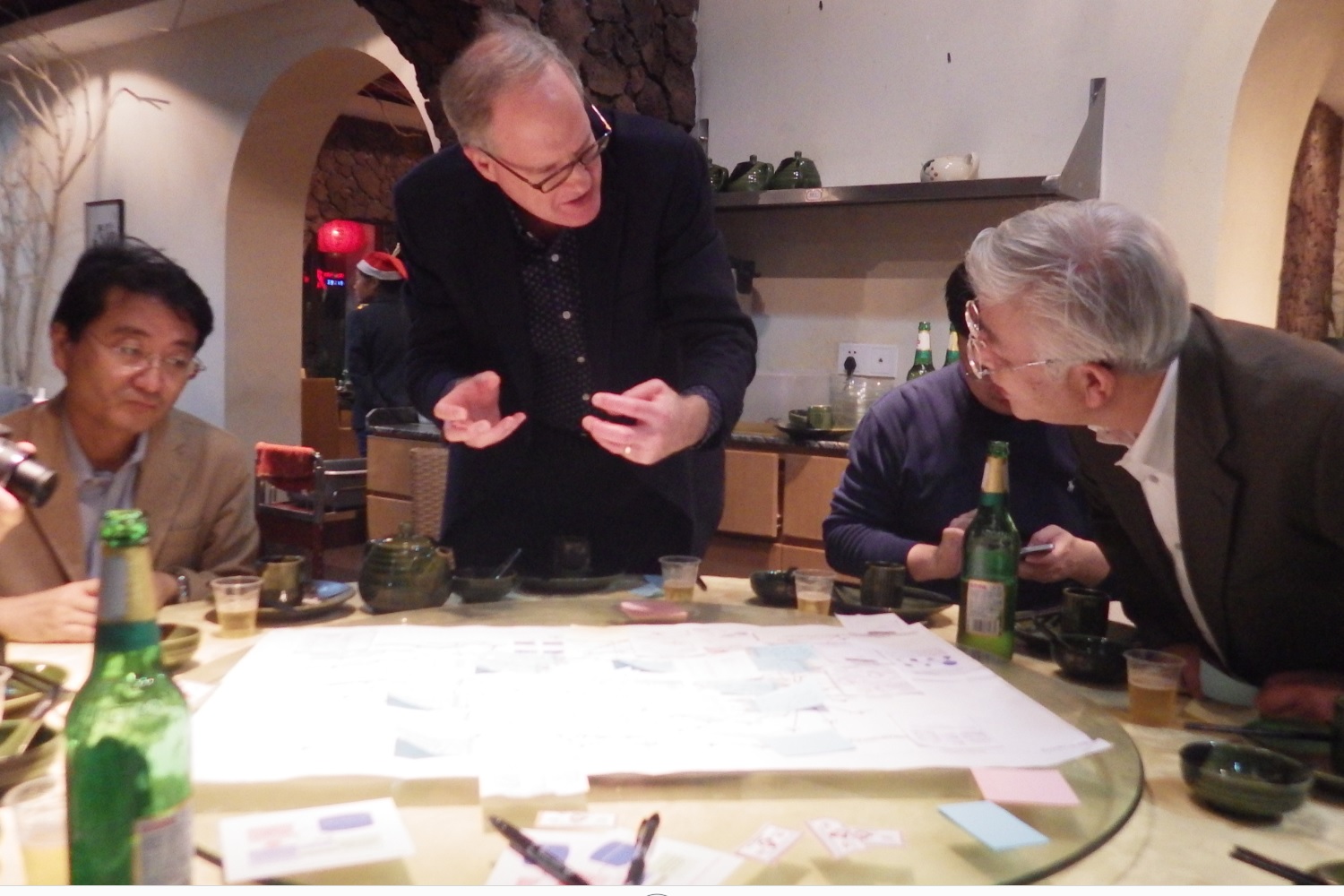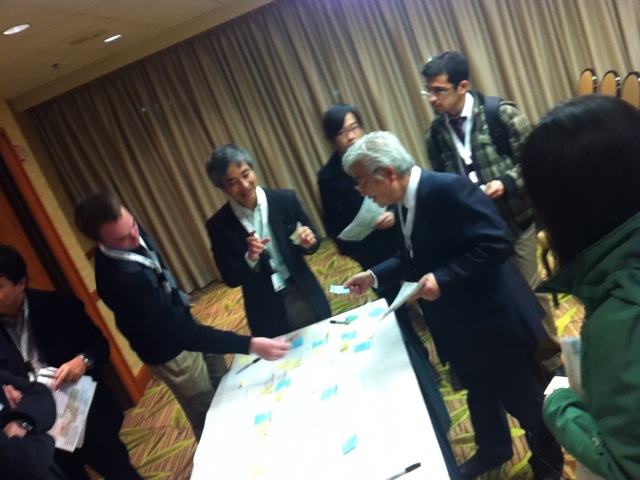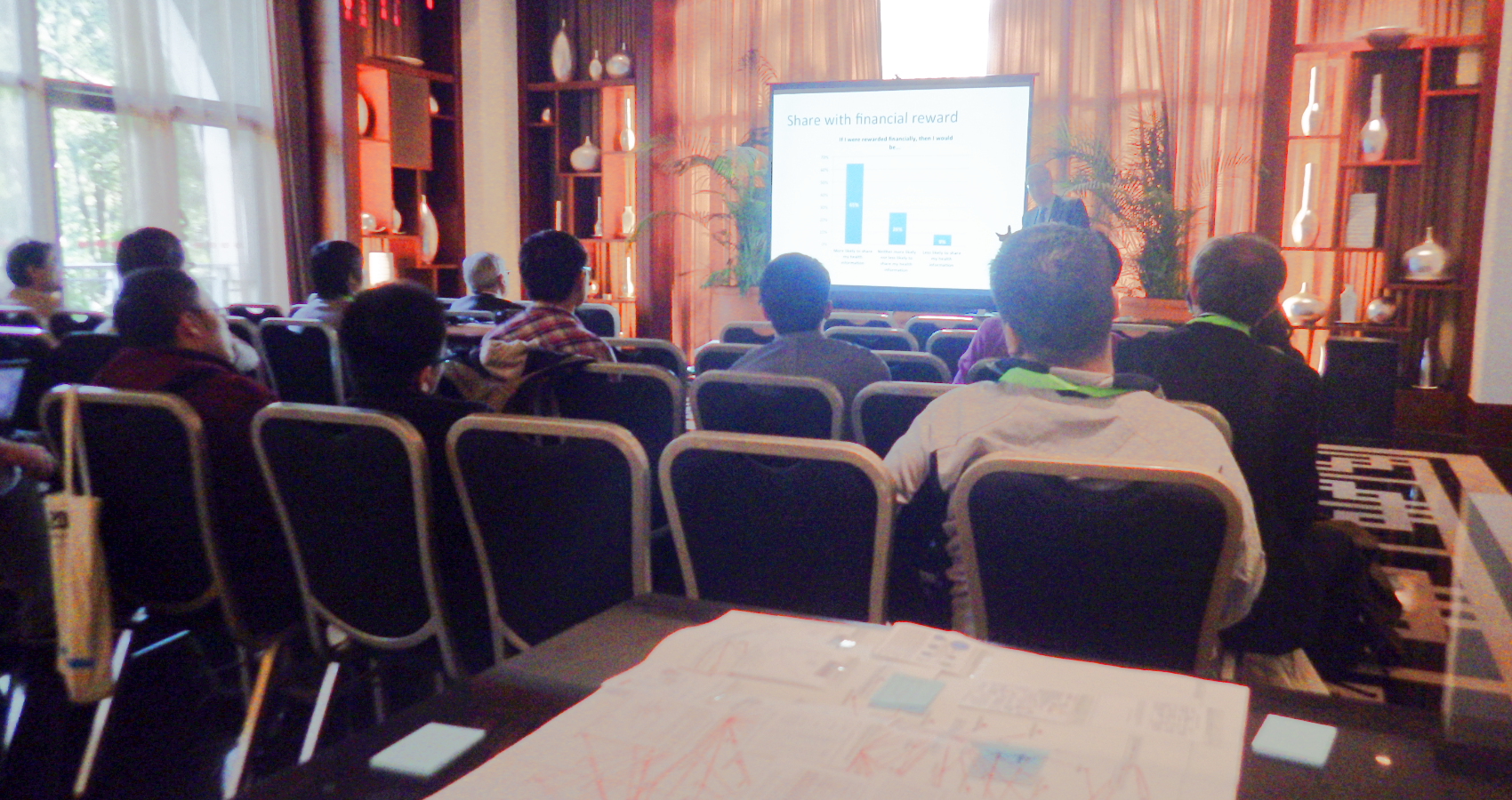IEEE International Conference on Data Mining
MoDAT : Designing Safe and Secure Life on the Market of Data - Exchanging and Integrating Data via Insightful Communications -
November 14th, in conjunction with IEEE ICDM 2015, Atlantic City, USA
- Deadline for submissions:July 20, 2015 (very strict - this is the first and the very final extension)
Scope
[Scope]
Since ICDM2013, MoDAT is a workshop to discuss how to design the Market of Data. In this market, data are reasonably dealt with - opened free, sold for suitable prices, or exchanged/shared based on negotiation. In the negotiation, people are expected to discuss use-scenarios of data until they learn the value of data and feel free to share/exchange data with each other without fearing loss of business opportunities. In MoDAT workshops so far, participants discussed from aspects of data links, data/text/Web mining, creative communication, etc. As a result, methods born or bred in the MoDAT2013 and MoDAT2014 came to be applied for governmental and industrial activities toward data driven innovations and educations. This year we focus on the topic of planning safe and secure life of human(s), by using/reusing/integrating data in domains such as health care, transportation, crimes, information security, life log, communication in SNS etc.
[Relevant topics (include, not restricted to)]
- Data/Text mining and visualization: visualization of links among data/ representation of the possibility to combine data and tools (for data mining and/or simulation and/or ...)/... etc
- Data driven innovation: methods to foster experts, users, and analysts of data to externalize use-scenarios and latent values of data via education, communication, and computation
- Knowledge representation: ontology about variables in data on safety and security/representation of links of data, tools, and experts from multiple domains/hierarchical structure of disastrous events/links between events and human actions
- Safety and/or Security: technologies and sciences relevant to such domains as medical science, nursing, transportation, marketing, network security, politics, etc.
Interests in these topics may co-exist in one submission. For example, visualization may be used to foster innovative communications, and to support thoughts of data scientists. In the last item, we love to involve experts of security or safety, who may be unfamiliar with data mining. Such participants will play an important role in the gaming session of Innovators Marketplace on Data Jackets, where social requirements and technical solutions meet, as an embodiment of innovative market of data.

|

|

|
Important Dates
- July 20, 2015 (extended from 1st August): Deadline for submission (Strict: No reasons for delay can be considered)
- September 1, 2015: Notification of paper acceptance to authors
- November 14, 2014: The workshop
Submission and Contact
ICDM has the unique tradition that all accepted workshop papers are published in a formal proceedings by the IEEE Computer Society Press.
- Submission
- Submit your paper(s) following the instruction below by the due 20nd July 2015.
- Authors are advised to visit the No.14 in the list of submission site that includes information for paper submissions only for the workshop. Get the template convenient for you for writing.
- Format: Limited to a maximum of *10* pages, in the IEEE 2-column format (for IEEE Computer Society conference proceedings). See th conference submission page above only to find the formatting guideline. Note this is not your interface for submission.
Our Past Records
We initiated MoDAT workshop since 2013, in ICDM2013. According to the workshop committee in ICDM2013, MoDAT has got reported to the steering committee as the best of all 17 workshops in the conference. Also, MoDAT have been selected as one of the 9 full day workshops accepted among 30 proposals in ICDM2014. And, after the workshop in 2014, we went out to a restaurant outside for realizing a gaming session on IMDJ that we are planning again this year. So far we organized and are organizing workshops, about data-based approaches to businesses, such as,
- Chance discovery and Data Synthesis (more than 30 international workshops and symposia, including IJCAI 2015, IJCAI 2011, ECAI2011, ICDM 2010, ECAI2004, KES2000 till 2013, AAAI Springer Symposia 2001)
- Discovery, Decision, and Design (IEEE SMC 2005-2011), and other workshops organized by the Technical Committee of Information Systems for Design and Marketing: Ohsawa (the chair) has been the TC chair of Information Systems for Design and Marketing, in SMC society of IEEE.
That are all linked to MoDAT. Also we edited Special Issues as guest editors for international journals, mainly relevant to chance discovery. The journals were: International Journal of Knowledge and Systems Science (2013), International Journal of Organizational and Collective Intelligence (2011), International Journal of Advanced Intelligence Paradigms (2010), Information Sciences (2009), International Journal of Knowledge-based and Intelligent Engineering Systems (2007, 2008), New Mathematics and Natural Computation (2006), New Generation Computing (2003), and Journal of Contingencies and Crisis Management (2002). If we count events, special issues, and books organized or edited by other members (than Ohsawa) of the program committee of this proposal, the record will be too large to list up here.
Program Committe
Ajith Abraham Machine Intelligence Research Labs
Akinori Abe Chiba University
Hidenao Abe Bunkyo University
Peter Bruza Queensland University of Technology
Kuiyu Chang Fyreflyz Private Limited
Shohei Hido Preferred Infrastructure Inc.
Tsuyoshi Ide IBM T. J. Watson Research Center
ShihChung Jessy Kang National Taiwan University
Noriyuki Kushiro Kyushu Institute of Technology
Yoshiharu Maeno Social Design Group
Lorenzo Magnani University of Pavia
Hiroshi Maruyama The Institute of Statistical Mathematics
Naohiro Matsumura Osaka University
Katashi Nagao Nagoya University
Jun Nakamura Kanazawa Institute of Technology
Katsumi Nitta Tokyo Institute of Technology
Yukio Ohsawa The Univ. of Tokyo
Lukas Pichl International Christian University
Eugene Santos Jr. Dartmouth University
Wataru Sunayama Hiroshima City University
Yasufumi Takama Tokyo Metropolitan University
Hideaki Takeda National Institute of Informatics
Vicenc Torra University of Skovde
Hiroe Tsubaki The Institute of Statistical Mathematics
Xijin Tang Chinese Academy of Sciences
Hao Wang Chinese Academy of Sciences
Mika Yasuoka IT University of Copenhagen